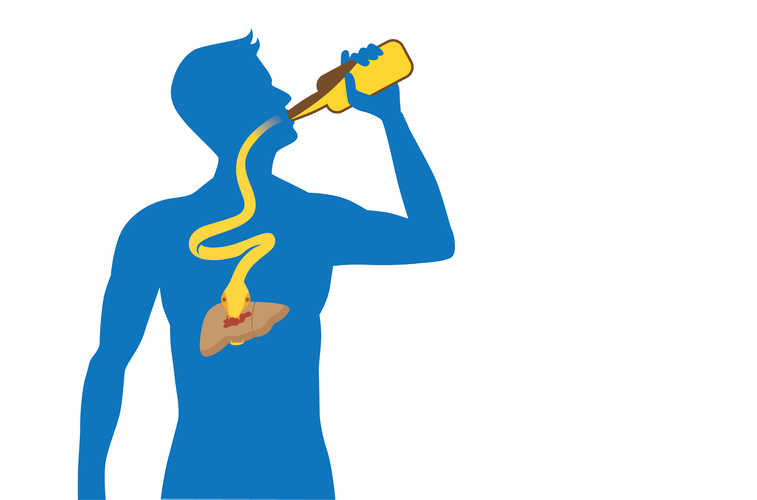Regardless, it’s always a good idea to look for mental health help if you’re experiencing something that causes you distress. In other words, those who had narcissistic tendencies were more likely to use alcohol and experience problems because of alcohol use. However, NPD includes other traits, such as needing constant praise and special treatment, reacting negatively to criticism, and manipulating others. People with NPD might be unwilling or unable to recognize others’ feelings and needs. If you’ve dealt with a narcissist you know that one minute they can be charming and pleasant but then turn around and become threatening and attacking. Alcoholics can undergo similar shifts when under the influence and can seem like a different person in a matter of a few drinks.
- This article looks at the links between narcissism and addiction and explains why people with narcissism may be more likely than other people to engage in addictive behaviors.
- Talk therapy can be an effective treatment for people with narcissistic personality disorder.
- If someone you love needs treatment for alcohol use disorder, there are also new, online options that can make the process easier.
- Addiction Resource aims to provide only the most current, accurate information in regards to addiction and addiction treatment, which means we only reference the most credible sources available.
Gain Validation and Attention

Recognizing these links traits may enable individuals to seek appropriate help in managing these conditions. Some common traits of individuals with both narcissism and alcohol addiction include a sense of entitlement, grandiosity, impulsivity, and a lack of empathy. As a result, these characteristics can make it difficult for them to maintain healthy relationships and engage in self-destructive behavior. Grandiose narcissism was also a significant predictor of a positive alcohol problem evaluation, over and above alcohol use, social desirability and vulnerable narcissism.
Family Programs

As an alcoholic narcissist, you may employ avoidant behavior, projecting blame onto others, or rationalizing your drinking to protect your ego and self-image. Acknowledging your addiction and the need for help is the first step towards recovery. As an alcoholic narcissist, your addiction and need for control lead you to increasing levels of alcohol use. Over time, your tolerance to alcohol builds up, meaning that you need to consume more to achieve the same effects.
Narcissism and sex addiction
This article discusses the similarities and differences between people with narcissistic personality disorder and those with alcohol use disorder. If you or someone you know is struggling with narcissism or alcoholism, it’s important to seek help from a mental health professional. Treatment may involve therapy, medication, and support groups, among other options. Whether a person is a covert narcissist, alcoholic with narcissistic personality traits, or a person with a dual diagnosis, finding a treatment program that meets their needs is very important.

Alcoholism Treatment Options
“After a period of time of being subjected to narcissistic manipulation, the victim finds themselves altering their identity to fit the wants of their partner whom they so badly wish to stay with,” Poulakos says. “This will often lead a victim to have low self-esteem in multiple areas of their life, like their job, parenting, or other https://www.mothersrings.us/how-i-became-an-expert-on-14/ relationships,” Temple says. Abusers with NPD may try to manipulate and control the people around them, says Jeff Temple, PhD, director of the Center for Violence Prevention at the University of Texas Medical Branch (UTMB). This can be especially difficult if someone with NPD is a roommate, significant other, parent, or coworker.
- People with narcissistic personality disorder may not want to think that anything could be wrong, so they usually don’t seek treatment.
- The number of criteria a person meets determines whether they have AUD, and if so, the severity of the condition.
- “After a period of time of being subjected to narcissistic manipulation, the victim finds themselves altering their identity to fit the wants of their partner whom they so badly wish to stay with,” Poulakos says.
- According to a 2009 article in the Journal of Clinical Psychiatry, the rates of drug addiction and alcoholism with NPD are 21.7% and 9.3% respectively, which is over 3% of the general population.
- If people have risk factors for AUD, feel they are drinking excessively, or cannot control their alcohol intake, they can speak with a healthcare professional.
- Therefore, the presence or absence of external validations of their value determines whether a person may have the traits of grandiose narcissism or vulnerable narcissism.
Interplay of Narcissism and Alcoholism
People with narcissistic personality disorder may be generally unhappy and disappointed when they’re not given the special favors or admiration that they believe they deserve. They may find their relationships troubled and unfulfilling, and other people may not enjoy being around them. Understanding the toxic dynamics and codependency that can arise in relationships http://www.upmonitor.ru/editorial/interview/2007-05-02/1269/ with alcoholic narcissists is crucial for those who find themselves in such situations. Recognizing the need for intervention and seeking support are essential steps towards breaking free from the cycle and fostering healthier relationships. While alcohol may initially provide a temporary escape, it can also reinforce and amplify narcissistic behavior over time.
Being in a relationship with a narcissistic alcoholic can be challenging and emotionally draining. The needs and desires of narcissistic individuals may be prioritized over those of their partner, leading to neglect and resentment. Additionally, alcohol addiction can lead to unpredictable behavior and emotional instability. Overall, the results of this study demonstrate the difference between the two types of narcissism and how they relate to alcohol outcomes in a college sample.
Understanding the Nature of Alcoholic Narcissism
Treatment for narcissistic personality disorder centers around talk therapy, also called psychotherapy. These treatments can help individuals achieve sobriety, promote personal growth, and establish healthier ways of relating to oneself and others. It’s important to note that treatment plans should be tailored to the individual’s specific needs and circumstances. The journey towards recovery may involve ups and downs, but with the right support and dedication, it is possible to break free from the grip of alcoholism and narcissism.
- Although it may be impossible to prevent NPD, people can take steps to reduce the risk of developing additional disorders through the understanding that it is common for substance misuse disorders to co-occur.
- Alcoholism can serve as a coping mechanism for individuals struggling with underlying narcissistic tendencies, and at the same time, alcohol can reinforce and exacerbate narcissistic behavior.
- Not all narcissists have problems with alcohol, but it isn’t uncommon for people with personality disorders to develop alcohol-related problems.
- While not all alcoholics are narcissistic, and not all narcissists are alcoholics, there are some similarities between the two conditions.
It can be hard to hold a connection with someone who appears to only think about themselves. A loved one’s drinking and selfish behavior can be devastating and cause a great deal of pain and disappointment. If you’ve ever wondered http://www.diveevo.ru/2/0/1/84/ if your loved one’s issues involve only their drinking problem or may in fact involve narcissism as well, consider the following symptoms. Patience and support are therefore needed to ensure the best possible outcomes.

